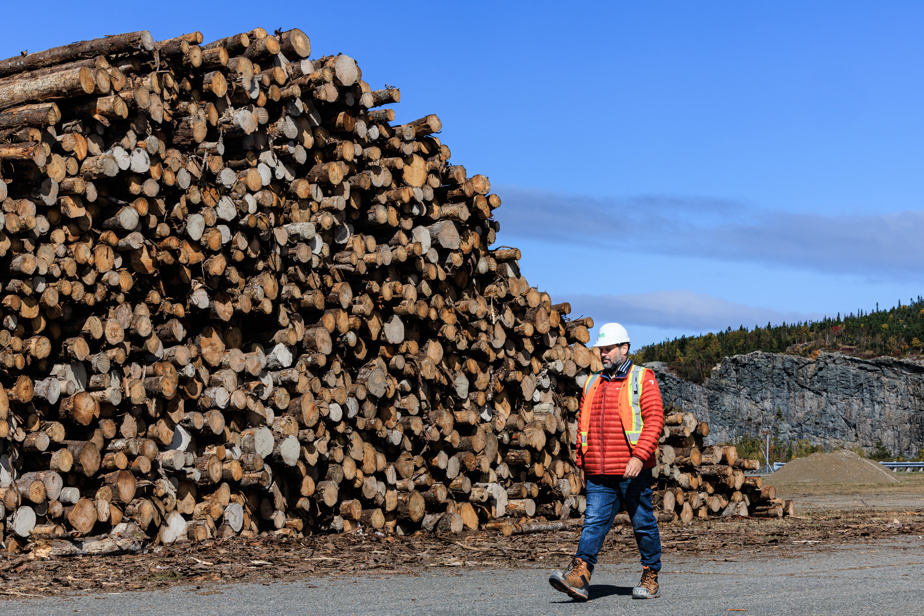Significant slowdown or recession, Quebec’s economy continues to weaken, while its gross domestic product contracted by 0.8% year-on-year in the third quarter.
This is the second consecutive quarter of decline in GDP, which corresponds to the technical definition of a recession, which is not unanimous.
“Having two consecutive negative quarters is not a sufficient criterion for declaring a recession,” says Stephen Gordon, director of the economics department at Laval University.
In addition to two consecutive quarters of economic contraction, other indicators must come together to officially declare a recession, including a deterioration in the job market. However, despite the recent increase in the unemployment rate, the job market is still doing very well in Quebec, underlines the professor.
“An economy where the main problem in the job market is a shortage of labor cannot be in recession,” he believes.
This is also the opinion of the Minister of Finance, Eric Girard, who was quick to comment on the figures from the Institute of Statistics of Quebec as soon as they were published Friday morning. “The ISQ confirms that the economic slowdown continues in the third quarter,” he commented on the social network is not generalized. »
Eric Girard insists on the fact that employment, disposable income and consumption continue to grow.
Just last month, the Minister of Finance had to note that the weakness of the Quebec economy was having an impact on government revenues. In his recent economic update, he reduced his growth forecast for 2023, but ruled out the possibility of a recession.
“A technical recession, i.e. a decline in real GDP for at least two consecutive quarters, is not anticipated in the short term,” according to the November 6 economic update.
The opposition did not fail to note this forecast which turned out to be erroneous a month later. “After the Kings affair and now poor economic forecasts, how can Quebecers still have confidence in a Minister of Finance incapable of seeing a recession coming when all the signals were red? », Reacted the Liberal Party’s finance spokesperson, Frédéric Beauchemin.
According to economists at the National Bank, the Quebec economy is doing less badly than it seems. The decline in the third quarter is explained by international trade and a drop in investment in inventories, while demand remains solid. Despite an increase of 1.2% since May, Quebec’s unemployment rate remains third among the lowest in the country, recall economists Matthieu Arseneau and Darren King.
Quebec could still have entered into recession before the rest of the country, but it is difficult to know with certainty because the other provinces do not publish quarterly statistics, indicates Desjardins economist Benoit Durocher.
The Quebec economy began its slowdown last May, he recalls. The GDP decline of 0.8% on an annualized quarterly basis in the third quarter follows a decline of 1.5% in the second quarter.
In Canada, the third quarter also shows a decline in GDP of 1.1%, but the last quarter of the year looks positive.
The last quarter of the year, the results of which will be known at the beginning of 2024, should be negative in Quebec, according to the Desjardins economist. “If we look to the future, with strikes in the public sector, there are no longer any doubts,” he believes.
But even with three negative quarters in a row, it won’t be a recession if other economic indicators continue to do well, says Professor Stephen Gordon, a member of the C.D. Howe Institute’s Business Cycle Council, which is responsible for to determine what is a recession and what is not.
What is happening in Quebec currently is similar to what happened in Canada in 2015, when there were two consecutive negative quarters while the job market remained robust, according to Stephen Gordon. Economists at the C.D. Howe Institute took three years before deciding, in 2018, that the Canadian economy was not in recession in 2015.
The question of whether Quebec is in recession or not could therefore continue to be debated for some time, recognizes Stephen Gordon, who notes that statistics are often subject to revisions which can change everything.
With the exception of the pandemic, which caused Quebec’s GDP to decline in the first two quarters of 2020, the last Quebec recession dates back to the financial crisis of 2008. The economy then declined for three consecutive quarters.
